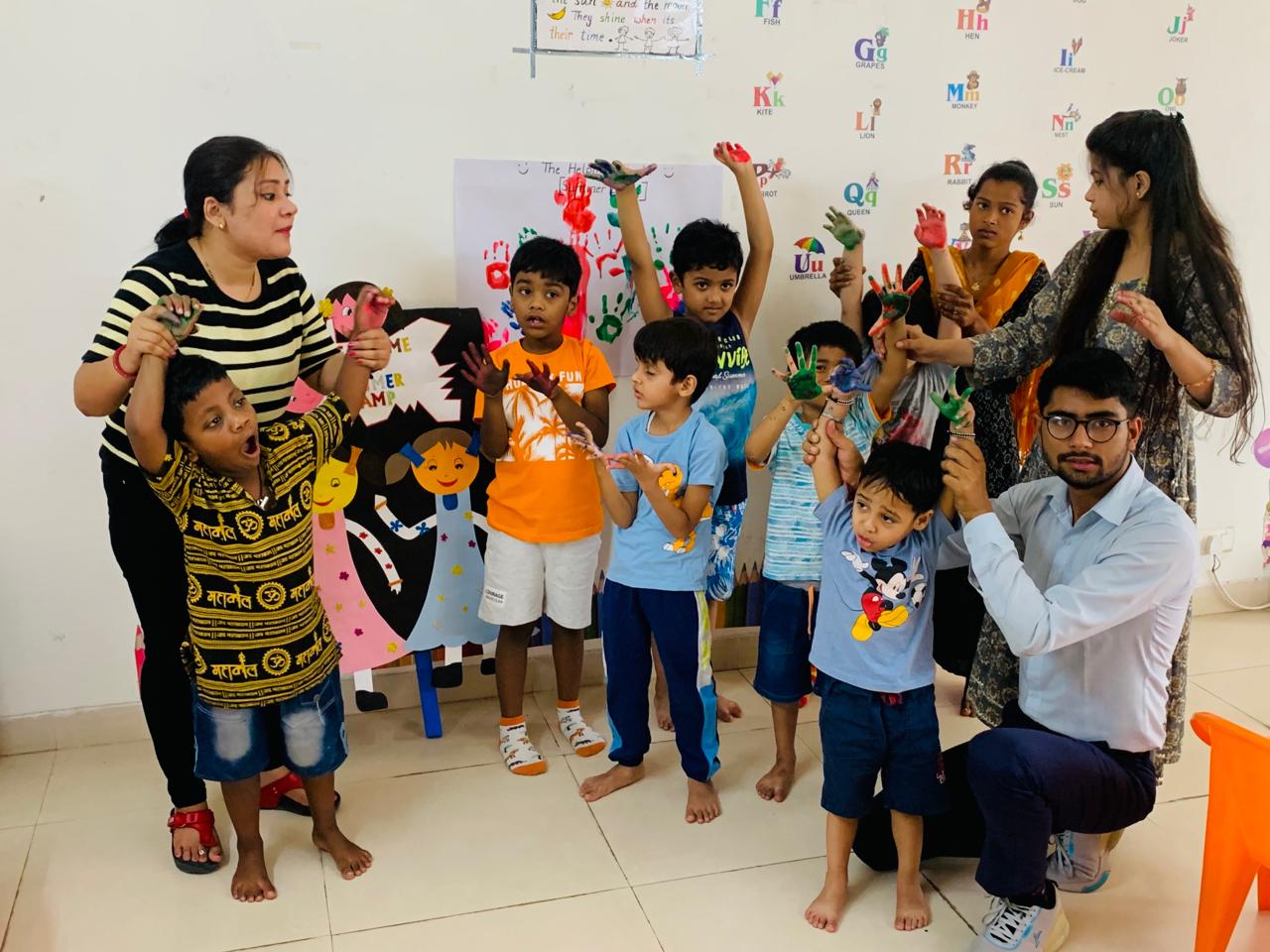- Email : info@thehelpinghands.org.in
- Phone : +91 8630229144
Giving your child the best start in life
Get In Touch
Monday to Saturday: 8.30am – 9.00pm
Email: info@thhtc.org.in
Phone: +91 8630229144
Occupational therapy is the only profession that helps people across the lifespan to do the things they want and need to do through the therapeutic use of daily activities (occupations). Occupational therapy practitioners enable people of all ages to live life to its fullest by helping them promote health, and prevent—or live better with—injury, illness, or disability.
Common occupational therapy interventions include helping children with disabilities to participate fully in school and social situations, helping people recovering from injury to regain skills, and providing supports for older adults experiencing physical and cognitive changes

Occupational therapists help people of all ages, from newborns to older adults. They have the knowledge and training necessary to work with people who suffer from a range of physical, cognitive and emotional illnesses or disabilities that impede their ability to do important and meaningful tasks such as eating, dressing, school activities and work. An OT may make changes in any of the things that limit an individual’s ability to perform such tasks, including the environment, the task, or the person’s skills required to carry out the task.
Occupational therapists and physical therapists (PT) work very closely together in many settings. In the end, occupational therapy is equally as important as physical therapy for people of all ages. It is an absolute essential to helping people regain their independence and ability to do what they love and enjoy in life.
At, ‘The Helping Hands Therapy Centre’, the team of Occupational Therapists have a holistic perspective, in which the focus is on adapting/planning the task for the students, and then implement it.
We do an individualized evaluation, during which the client/family and occupational therapist determine the person’s goals, customized intervention to improve the person’s ability to perform daily activities and reach the goals, and an outcomes evaluation to ensure that the goals are being met and/or make changes to the intervention plan.